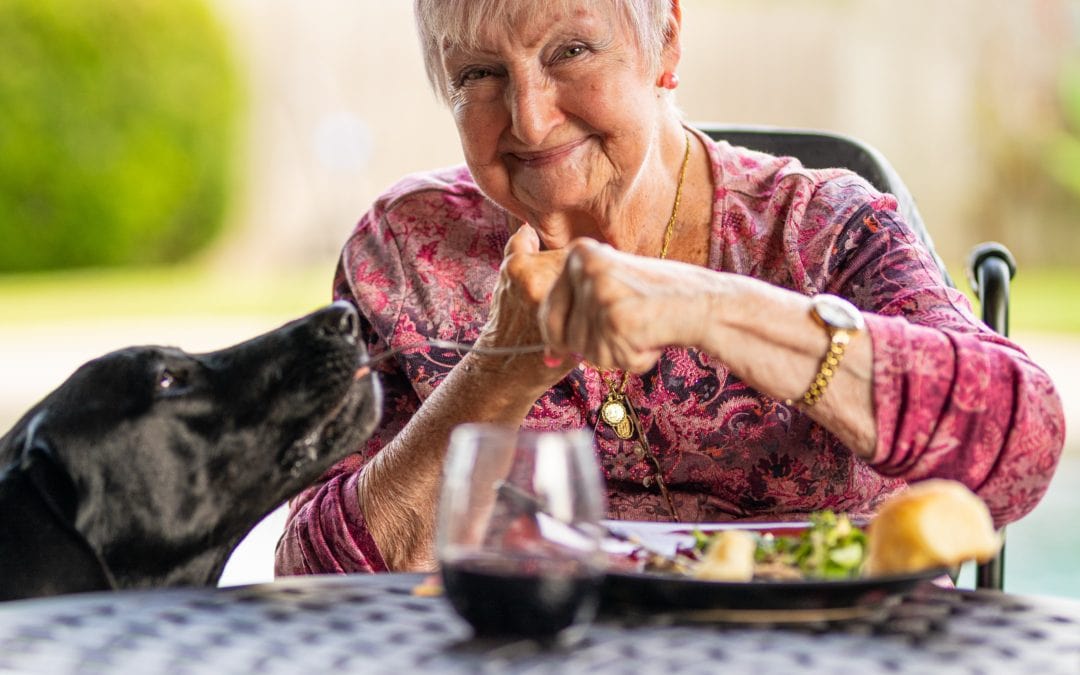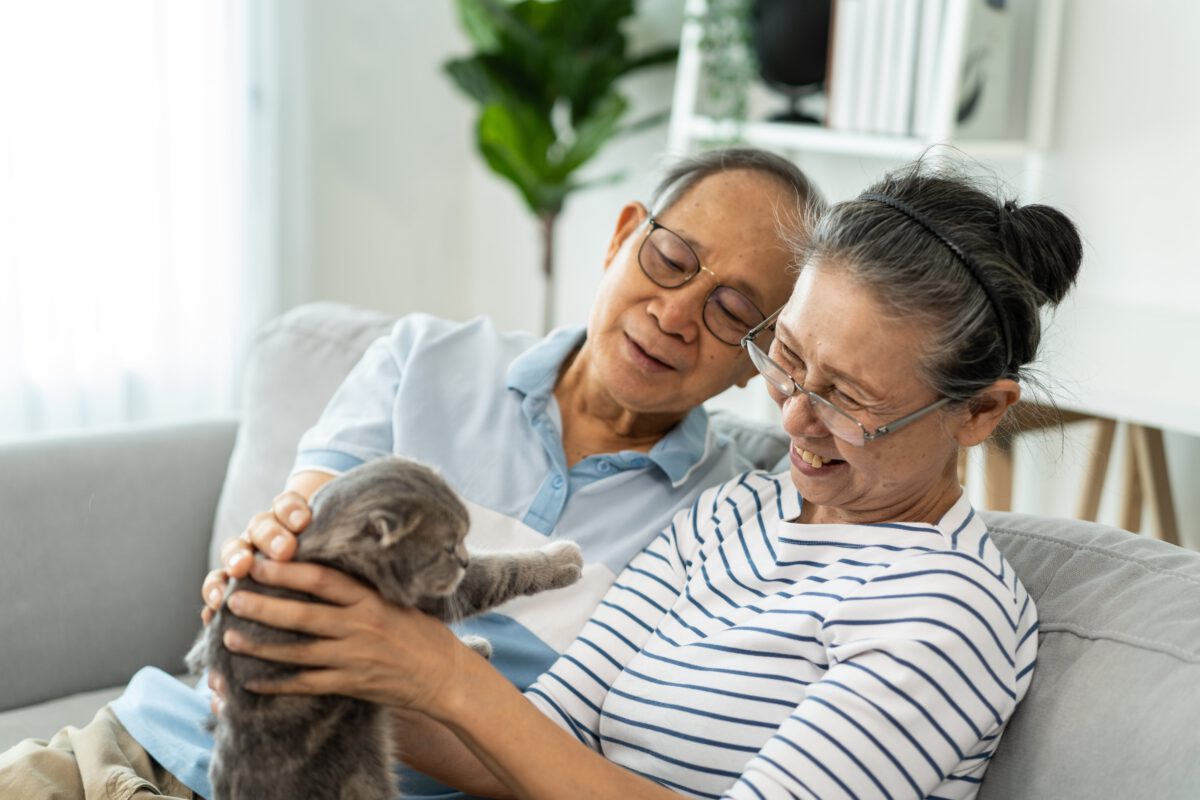Ask Rose
We’re here to help you find what you’re looking for! Please enter a search term below, and use our filters to refine your search.
Call (216) 791-8000What can we help you find?
Filter by Audience
Filter by Type

Planning Ahead: Why Housing is Key to Aging Securely
When we think about aging, we often focus on health, retirement savings and estate planning. But one of the most important and overlooked factors in aging securely is housing. Where we live as we grow older plays a huge role in our physical and financial stability and emotional well-being. Yet many people don’t consider the long-term impact of their housing decisions until it’s too late.

Practical Tips for Aging in Place with Mobility Aids
Aging in place with the support of mobility aids requires a holistic approach that encompasses understanding the challenges, selecting the right aids, making essential home modifications, creating a age-friendly living space, and utilizing caregiver assistance along with financial and community resources. By implementing these practical tips, older adults can maintain their independence and quality of life in the comfort of their own homes.

Aging in Place: Naturally Occurring Retirement Communities
Please join Benjamin Rose Institute on Aging for a virtual discussion presented in partnership with the Elder Justice Coalition. We will provide an overview of naturally occurring retirement communities, and how they can empower us to age in place. Orion H. Bell IV, President and Chief Executive Officer at Benjamin Rose will discuss the benefits and challenges of these communities and discuss models for future communities in Northeast Ohio and across the nation.

17th Annual Katz Policy Lecture: Safe, Affordable and Accessible Housing for Older Adults
This year, the 17th annual Katz Policy Lecture examines safe, affordable, and sustainable housing for older adults. Our keynote speaker, Diane Yentel, President and CEO of the National Low Income Housing Coalition, discusses new directions in national and state housing policies related to older adults and their family and friend caregivers. Following the keynote address, a reactor panel of industry experts offer their responses to the presentation and discuss how housing issues impact individuals and the communities they are a part of.

The Policy of Developing a Quality Workforce in Long Term Care
Learn as we discuss the intersection of policy, staffing, and workforce issues in long term care. Presented in partnership with the Elder Justice Coalition, Robyn Stone, Senior Vice President, Research and Co-Director at Leading Age, weprovide insight into current and future issues related to the needs of our aging society.

Affordable and Accessible Housing Policy
Tune into an up-to-date virtual discussion on affordable and accessible housing for older adults in our communities, presented in partnership with the Elder Justice Coalition. This webinar provided an overview of challenges, strategies and recommendations to support older adults as they age in place. Linda Couch, Vice President of Housing Policy at LeadingAge, discusses federal housing policy as a public health strategy to allow older adults to stay in their homes. She is joined by professionals from Empowering and Strengthening Ohio’s People to examine housing issues and challenges for older adults, and how organizations can use local and federal funding to sustain staffing and provide services to reach at-risk homeowners.

Maximizing the Environment for Individuals with Dementia
According to the AARP, most Americans would prefer to stay in their homes until the end of their life. This statistic is no different for persons with dementia. Lack of safety and accessibility in the home are issues that need to be addressed so that individuals with dementia and their respective caregivers also have the ability to age in place. Occupational therapy professionals are trained health care providers that can provide formalized home safety assessments and recommend home modifications to increase safety and independence in the home. These efforts are also beneficial for community and business owners to consider and employ to further support individuals with dementia in the community.

Making the Transition to Long Term Care a Successful Choice
Have you made the decision to transition your loved one to long-term care? This can change your role as a caregiver and return your relationship with your loved one to one that is more personal and familial. How can you make this a decision that both incorporates your loved one’s preferences and supports their personal values? This webinar will discuss important topics for this transition, including the assessment process, how to communicate with long-term care facilities and care planning.

Aging in Place
What’s the best way to successfully age in place? This webinar will review our newest homeownership workshop: “Aging in Place: Know Your Housing Options.” We’ll discuss how you can assess your loved one’s home for safety, accessibility and affordability; how your loved one can use their home equity to keep their home; ways to explore the many housing options available to your loved one; additional benefits; and legal and tax issues. We’ll also share an overview of Ohio’s first nonprofit real estate agency, and the many services offered to help both first time homebuyers purchase their first home and older adults transition out of their last homes.

Aging in Place: Naturally Occurring Retirement Communities
The desire to age well in our homes tends to drive us to explore ways to safely remain in the community as long as possible. But safety isn’t the only concern: we hope to be independent, engaged, empowered, connected, and have access to resources when we need them as well. Naturally occurring retirement communities (NORCs) offer an opportunity to coordinate livable communities that ensure we can comfortably age in place.

Weighing the Cost of Living Options as an Older Adult
It’s natural for time to sneak up on you, especially when you reach your retirement years and beyond. As your wants and needs evolve with time, you may want to reevaluate your living arrangements. You may have been planning to move somewhere new for quite a while or, on the flip side, have just begun noticing how big your home feels after your children have moved out. Whatever the case may be, there are plenty of living options you can consider for your next chapter in life.

Pet Friendly Senior Living: What Questions Should I Ask?
In the United States, just over half of people ages 50 and older live with at least one pet, and studies have shown that companionship was the most common reason for owning a pet. Experiencing this bond with a pet can be a value that shapes an older adult’s choices, preferences and environment as they experience changes associated with aging. But if a time comes to transition to assisted living, how can you maintain that important bond with your pet?

How to Organize Your Finances as a New Retiree
If you’ve finally reached retirement, congratulations! This is yet another chapter in life you must learn to navigate, as you’ll suddenly have much more time to spend with your personal interests. This could mean you dive deep into a hobby, plan to travel more or find a new part-time job to stay active. Whatever your path may be, you’ll want to make sure you keep your finances organized during your retirement years to remain comfortable and continue pursuing your goals.

Secondary Caregiving: Providing Care to a Loved One in Assisted Living
When we transition a loved one to an assisted living facility, it may feel as if our role as a caregiver has ended. However, most caregivers who move a loved one into assisted living instead experience a change in their caregiving role rather than an end to this role entirely. With this change can come new responsibilities and sources of stress.

Preparing Your Home for Hospice
If the loved one we care for is in the advanced stages of a disease and we’ve decided that we would like them to be in as much comfort as possible in familiar surroundings, home hospice may be the right choice. However, arranging a loved one’s home or our own for a hospice stay takes some thought and preparation. We likely don’t want the place to look like a hospital, but we need to have all of the necessary equipment the loved one we care for requires.

Bathroom Safety for a Loved One with Late Stage Dementia
These days, about 80 percent of people with Alzheimer’s disease and related dementias (ADRD) stay in their own homes with the support of family and friend caregivers rather than move to long-term care facilities. While aging in place can provide a loved one with a familiar, comforting space, it can also lead to challenges related to the safety of the home environment. Things around the house like stairwells, area rugs, medicine cabinets and knife blocks that were once a normal part of a loved one’s living space may now present new dangers with ADRD.

Helping an Older Loved One Stay Cool at Home During the Summer Heat
With summer temperatures reaching 90 degrees or over in certain parts of the country, COVID-19 guidelines that recommend staying at home may seem like a blessing. After all, it’s easier to keep cool in a well air-conditioned room than it is outside in the blistering heat. However, staying cool at home isn’t always as easy as it sounds, especially for older adults. According to the CDC, people aged 65 and older are at an increased risk for heat-related health problems such as heat stress, heat intolerance and difficulty regulating body temperature.

Financial Options for Renters and Homeowners Impacted by COVID-19
Every emergency requires a nuanced response, and the impacts of this pandemic, both short-term and long-term, are difficult to anticipate with certainty at this time. However, history demonstrates time and again that those that are most vulnerable even in times of economic and social stability generally suffer the greatest in times of turmoil. For those of us who are struggling to make our mortgage and rental payments, there are resources and up-to-date information available to help.

Tips to Avoid Foreclosure
When we fail to make our mortgage payments, foreclosure may occur. Foreclosure is the legal means that a lender can use to repossess, or take over, a home. When this happens, we must move out of our home. If our property is worth less than the total amount we owe to the bank, a deficiency judgment, which is a ruling made by a court against a borrower who does not have enough funds to pay back their loan, could be pursued against us. If that happens, we not only lose our home, but we also then owe our lender additional fees. Both foreclosures and deficiency judgments could seriously affect our ability to qualify for credit in the future.

Keeping the Kitchen Safe for a Loved One with Late Stage Dementia
The kitchen is the heart of most families' homes. If we have a loved one living with dementia at home, especially in the later stages, we will want to do everything we can to help keep their kitchen as safe as it can be.



















